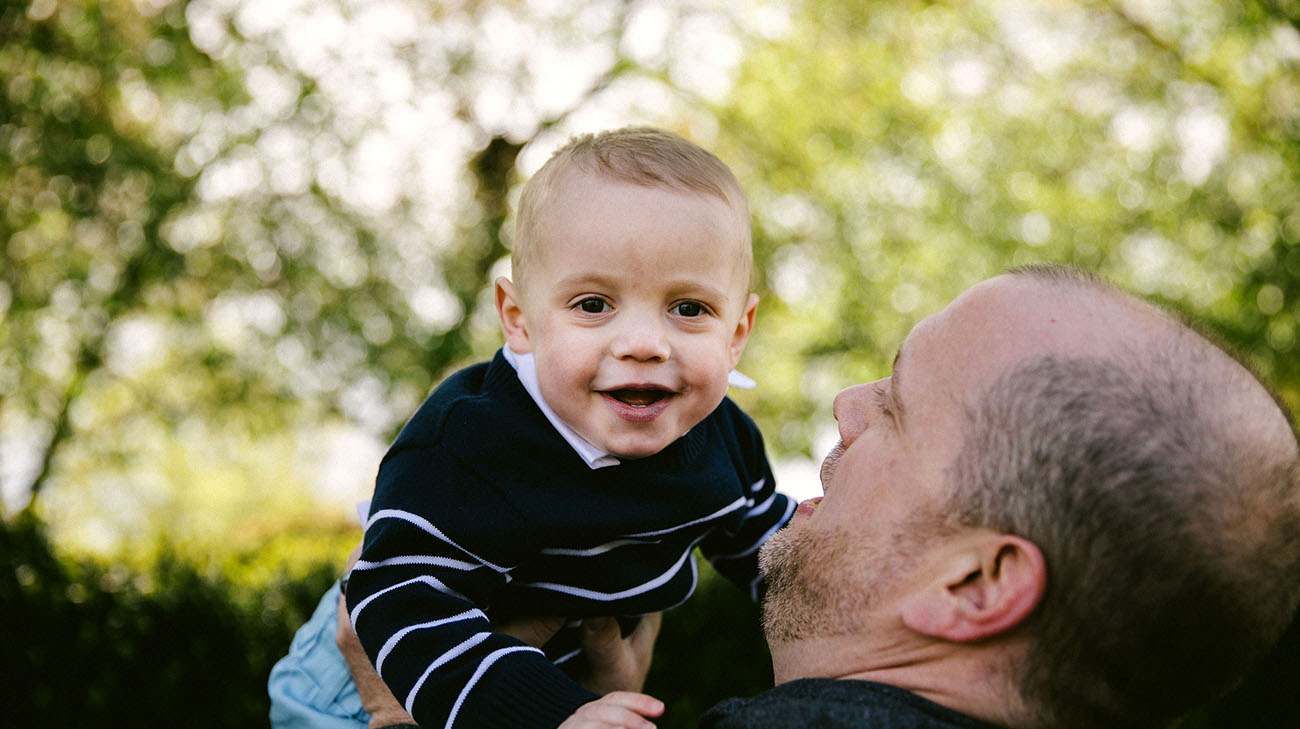
Adrienne Mueller was 21 weeks pregnant when she and husband, Bo, learned their unborn son had a severe heart defect. His chances of survival after birth? Ten percent or less.
“There was a high likelihood that he would pass away, in utero, and be stillborn,” states Adrienne, a Cleveland attorney. “We talked to our priest about baptism options. We had prepared ourselves for the worst outcome, but hoped for the best.”
Today, 20-month-old Geno Mueller has beaten the odds, and – says Bo – “is a happy baby, running around playing with his brothers, throwing food at the dog. Geno just keeps going.”
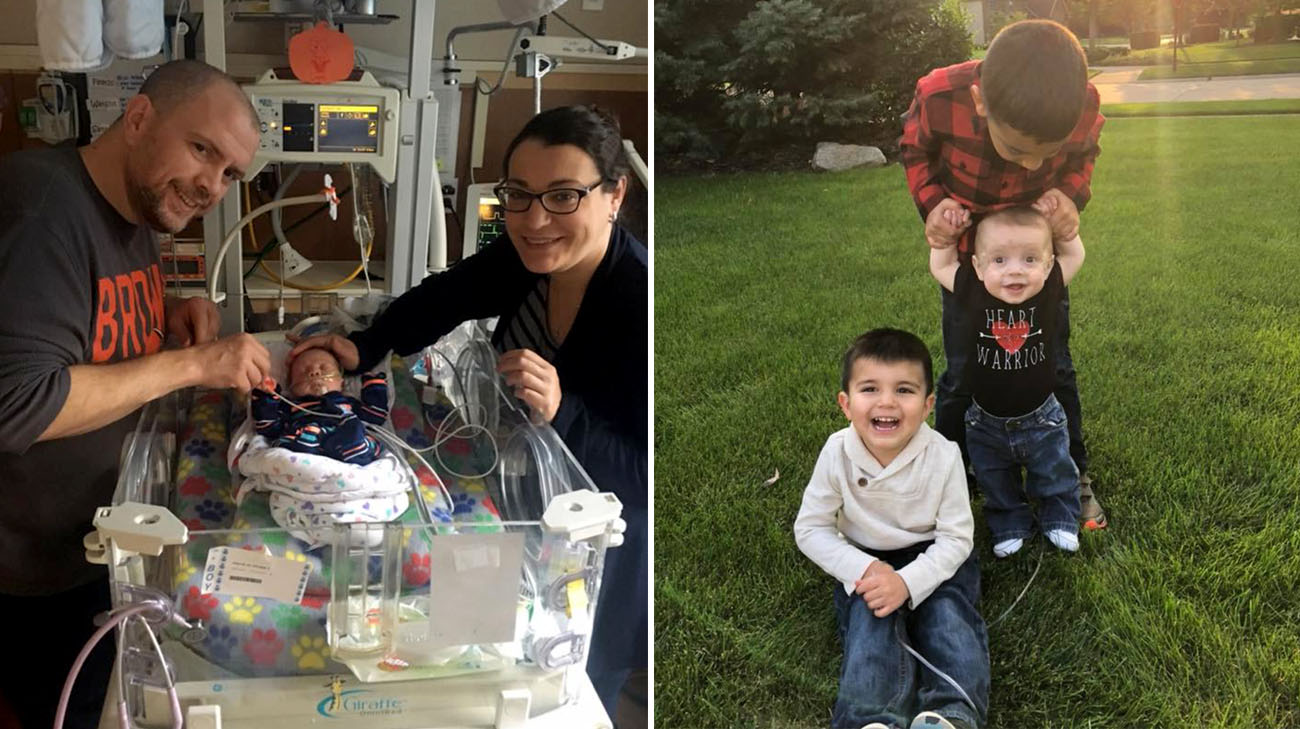
Geno's parents and brothers have been his biggest champions. (Courtesy: Adrienne Mueller)
Adrienne was at a normal check-in with her obstetrician when a sonogram revealed that Geno had complete heart block and hydrops fetalis, a condition in which abnormal amounts of amniotic fluid build-up in various parts of the body because of heart problems.
According to Gerard Boyle, MD, a pediatric cardiologist in Cleveland Clinic Children's Department of Pediatric Cardiology & Cardiothoracic Surgery who treated Geno after he was born, the baby’s heart rate was in the 50 beats per minute range. It should have been 120 to 130. “When the rate is that slow, the heart muscle has to work harder to provide enough blood circulation, and that leads to breathing issues and other issues,” says Dr. Boyle, who is also medical director of Pediatric Heart Failure and Transplant Services at Cleveland Clinic.
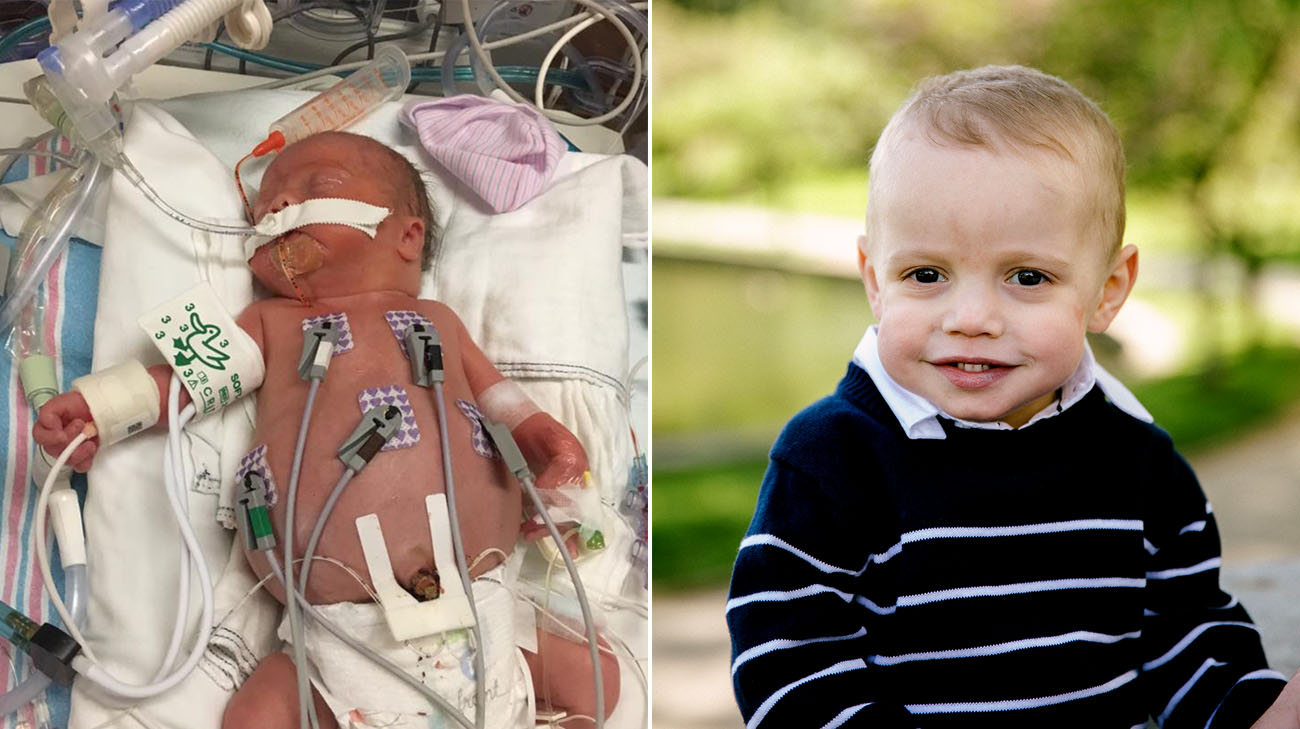
Geno was born at 29 weeks at Cleveland Clinic. He's now an active and happy 20-month-old. (Courtesy: Adrienne Mueller and Tess Smith Photography)
Adrienne and Geno were closely monitored until he reached 29 weeks gestation, when – as Bo describes it – “they figured he was better off ‘out’ than ‘in.” Born via C-section on October 13, 2017, Geno was immediately tended to by a team of specialists, including pediatric neonatologist Ibrahim Sammour, MD, who worked feverishly to stabilize Geno in the minutes, hours and days after his birth.
“When a child like Geno is born with hydrops fetalis, the big issue is to get them to breathe and ventilate,” explains Dr. Sammour. “Our main goal as a NICU team was to establish a good airway and oxygen delivery to his lungs. Geno was exactly where he needed to be to survive.”
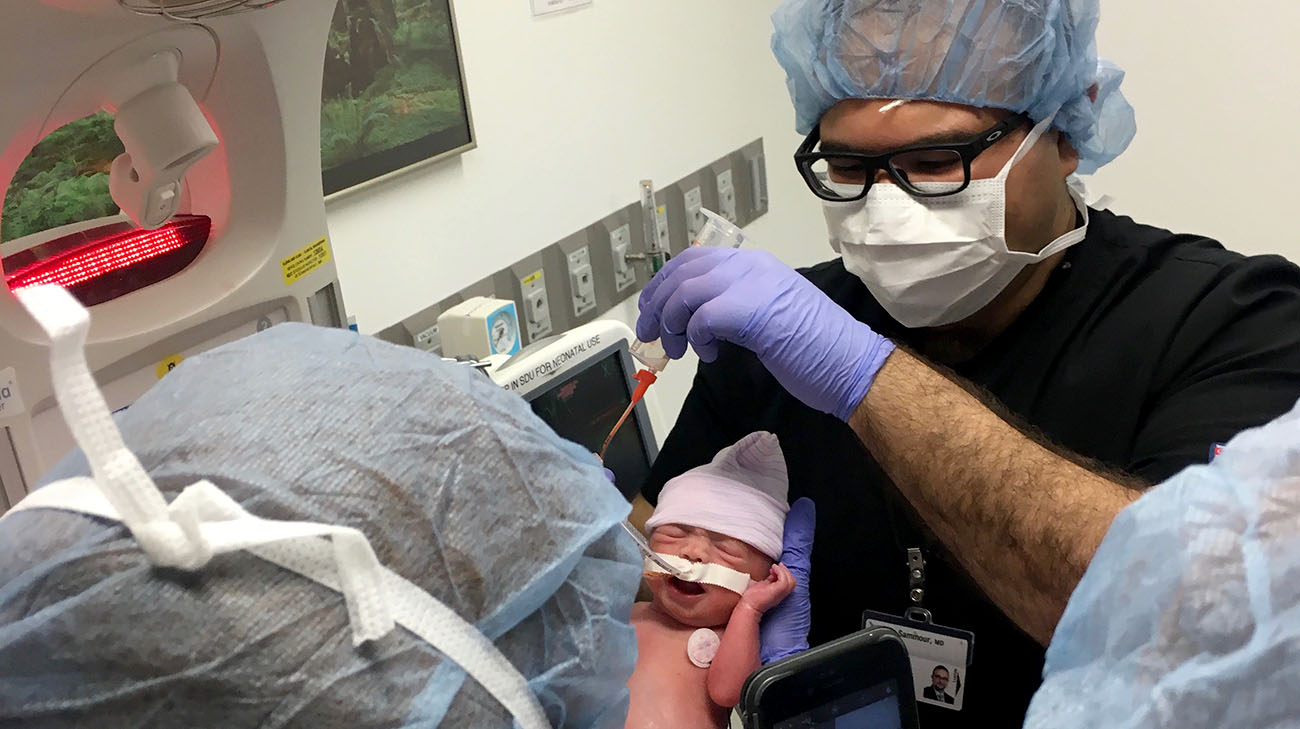
Neonatologist Ibrahim Sammour, MD, with Geno moments after he was born. (Courtesy: Adrienne Mueller)
As pediatric cardiologists, respiratory therapists, NICU nurses and countless other specialists collaborated, Geno slowly improved. A key moment was the surgical placement of a dual chamber pacemaker in Geno when he was 2 months old. Dr. Boyle, who worked closely with pediatric electrophysiologist Peter Aziz, MD, in treating Geno, realizes that the level of high-quality specialized care required is not available everywhere.
“Children’s hospitals need to be better funded overall,” observes Dr. Boyle. “But we also need a push toward making sure specialty-care pediatric hospitals have the resources to provide that treatment at a very high level.”
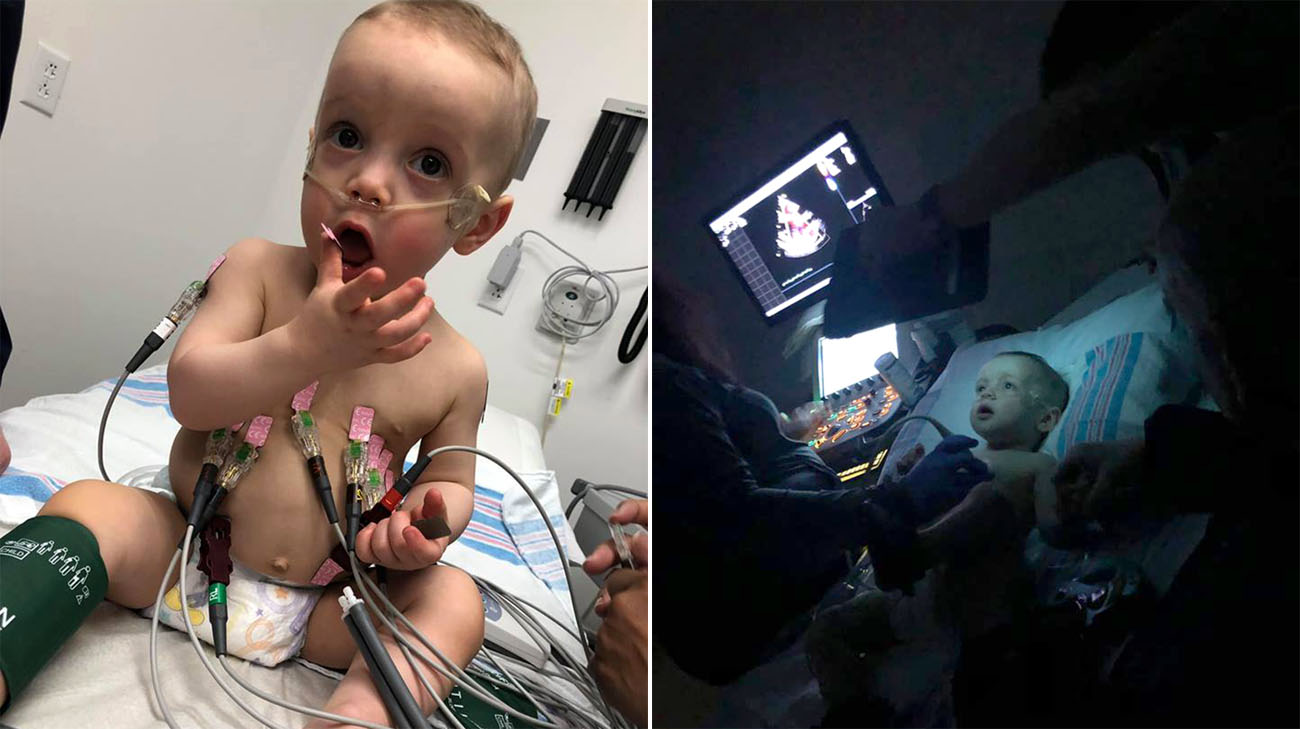
Geno getting testing done at Cleveland Clinic Children's. (Courtesy: Adrienne Mueller)
“We are happy to serve as ambassadors and to show off the incredible care Geno has had, since even before he was born,” explains Adrienne. “By meeting Geno, we hope it will give these leaders a real face to see and a real story to hear as they consider important decisions on children’s healthcare funding.”
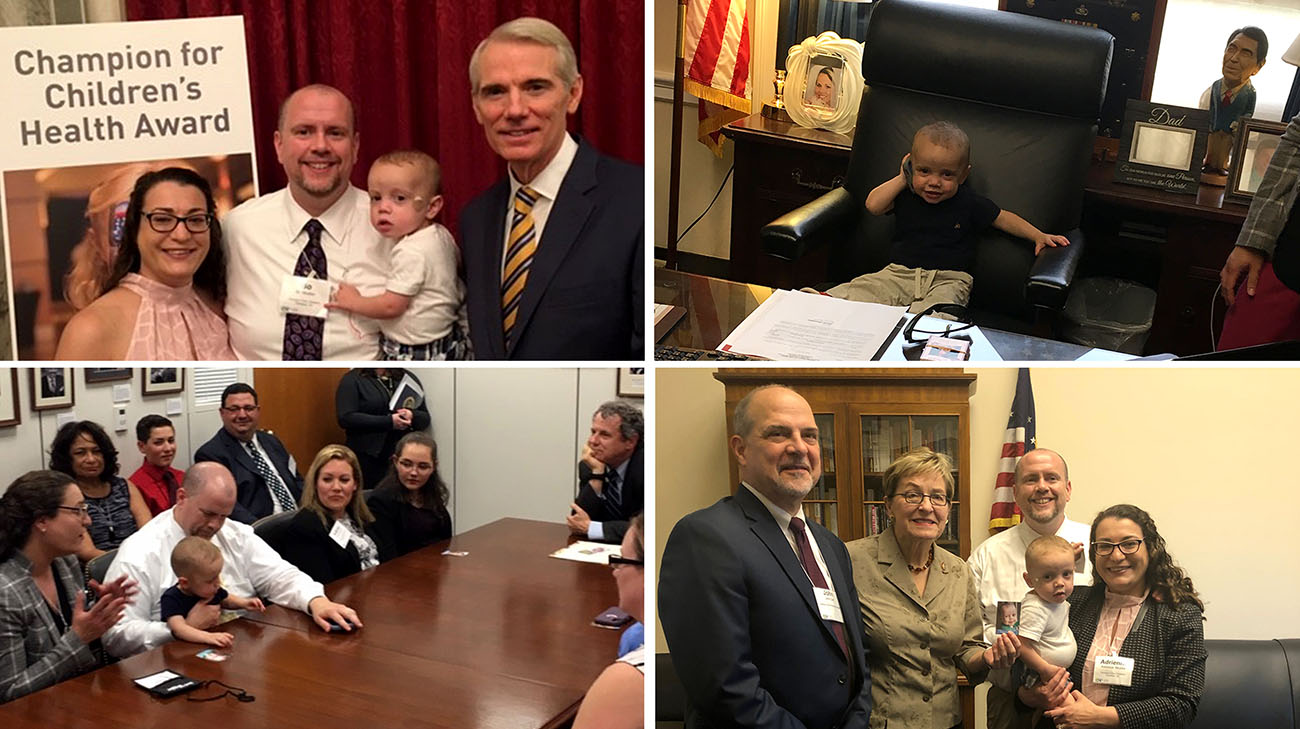
Geno and his parents met with several lawmakers in Washington D.C. (Courtesy: Cleveland Clinic)
Bo notes, “We just want to tell Geno’s story. If (lawmakers) can earmark additional funding for pediatric research and healthcare, that will give hope to a lot more families – and we’re one of them.”
Where there is hope, there are opportunities for miraculous outcomes. Adds Dr. Boyle, “It’s very rewarding to see Geno thrive and become a normal kid.”
Related Institutes: Cleveland Clinic Children's , Heart, Vascular & Thoracic Institute (Miller Family)

